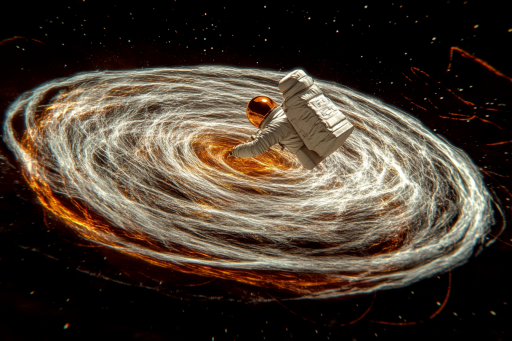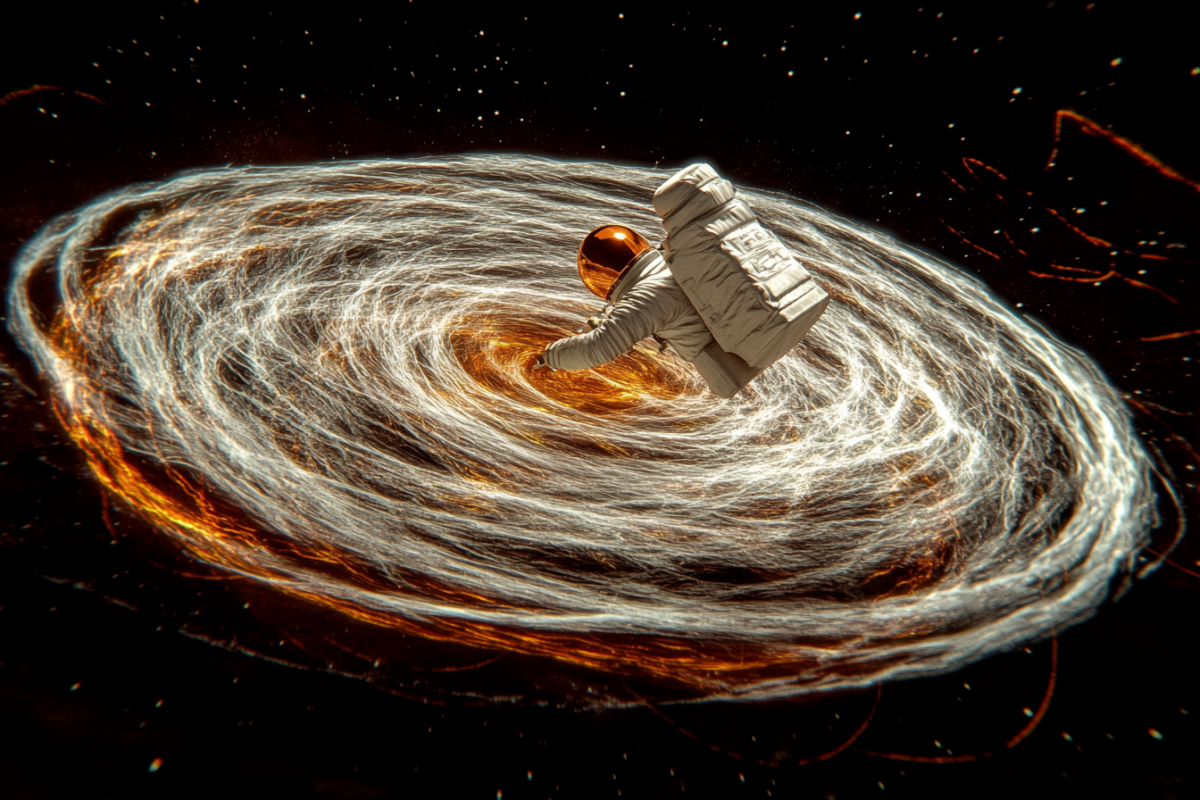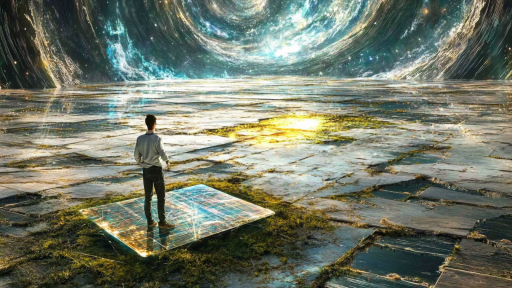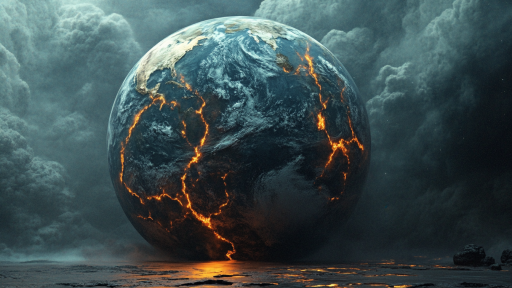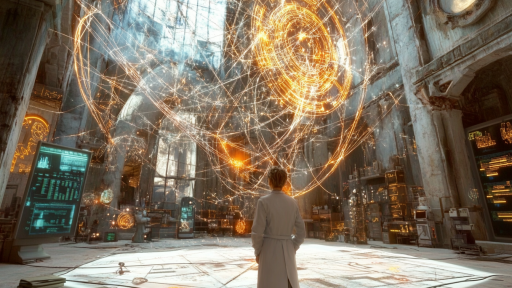
Time flows forward—or at least, that’s what we believe. Yet across the universe, strange space-time anomalies challenge everything we think we know. From regions where time slows to gravitational warps that twist reality itself, these mysteries defy human comprehension. Could they be glitches in the fabric of the cosmos, or signs of forces we are only beginning to understand?
Black Holes – Where Time Stands Still

Black holes warp space and time so intensely that anything crossing their event horizon is frozen in time from an outside perspective. Inside, time moves differently, creating an eerie paradox where an object appears to fall in forever. Scientists believe that at the core of a black hole, the laws of physics as we know them break down completely. What secrets could be locked within these cosmic voids?
The Andromeda Paradox – Seeing the Future Through a Telescope

When we look at the Andromeda Galaxy, we see it as it was millions of years ago, since its light took that long to reach us. Yet, according to relativity, an observer traveling at high speeds toward Andromeda might perceive its events happening now. This paradox suggests that time isn’t as rigid as we assume—could our own past, present, and future be just points of view?
The Eridanus Supervoid – A Possible Glitch in Reality?

A vast, unexplained cold spot in the cosmic microwave background suggests the presence of an enormous “supervoid” in space. This region, spanning over a billion light-years, seems to lack normal matter and energy, puzzling astronomers. Some theories propose it could be evidence of a parallel universe brushing against our own. Could this anomaly be a clue to something beyond the known cosmos?
Time Dilation – The Faster You Move, the Slower Time Gets

Einstein’s theory of relativity states that as an object approaches the speed of light, time slows down for it compared to stationary observers. This means that astronauts traveling at near-light speeds could return to Earth to find centuries have passed while they’ve aged only a few years. If humans ever achieve interstellar travel, would we become strangers to our own future?
The Bermuda Triangle of Space – The South Atlantic Anomaly

A mysterious region above Earth, called the South Atlantic Anomaly, interferes with satellites and even causes astronaut hallucinations. This area has unusually weak Earth’s magnetic fields, exposing spacecraft to high radiation levels. Some astronauts report seeing flashes of light even with their eyes closed, leading some to speculate that this zone distorts human perception of reality.
White Holes – The Opposite of Black Holes?

Theoretical physics suggests the existence of white holes—cosmic objects that can never be entered but continuously expel matter and energy. Unlike black holes, which pull everything in, white holes force everything out. Some theories suggest they may be linked to black holes, forming tunnels through space-time. Could they be gateways to another universe?
The “Frozen Time” of Neutron Stars

Neutron stars are so dense that their gravitational pull slows time around them. A clock placed near a neutron star would tick slower than one on Earth, meaning observers at a distance would see events happening in extreme slow motion. Could these collapsed stars be natural time machines, showing us echoes of the past?
Cosmic Strings – Time Loops in Space

Some physicists believe that the early universe may have left behind cosmic strings—thin, incredibly dense filaments of energy. If they exist, their extreme gravitational pull could warp time itself, potentially creating closed time loops. Could these strings be hidden pathways allowing time travel?
The Great Attractor – A Mysterious Pull Beyond Our Galaxy

Something colossal is pulling entire galaxies—including the Milky Way—toward it at incomprehensible speeds. Known as the Great Attractor, this mysterious force is obscured behind the plane of the Milky Way, making it impossible to observe. Some theories suggest it could be a massive concentration of dark matter, or even an unknown form of cosmic energy warping space-time.
Quantum Entanglement – Spooky Action That Defies Time

Two particles, once entangled, can affect each other instantaneously, no matter how far apart they are—even across galaxies. This seems to violate the speed of light and possibly bypass time itself. Could quantum entanglement be proof that time is just an illusion?
The Time Before the Big Bang – Did Time Even Exist?

Cosmologists believe time itself began with the Big Bang, but some theories suggest something existed before. Could time be cyclical, resetting with every universe’s birth and death? If so, are we living in just one iteration of an endless cosmic loop?
What If Time Isn’t What We Think It Is?

Time is often seen as a linear progression, but anomalies across the universe challenge this belief. If time can slow, stop, loop, or even reverse, is it something real—or just a construct of our perception? What if time, like space, is something we can one day manipulate?

